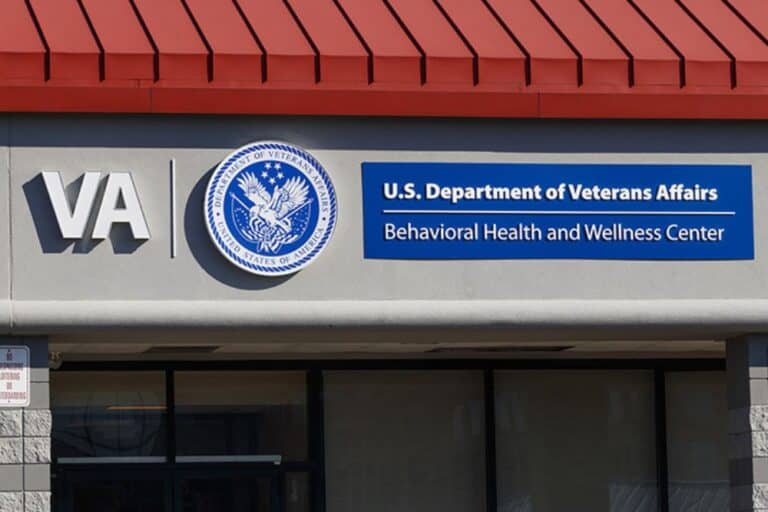What is the VA 10-Year Rule? Explained and Simplified
If you’re a veteran who has been receiving disability benefits from the U.S. Department of Veterans Affairs (VA) for more than a decade, it’s reassuring to learn that your benefits cannot be discontinued without evidence of fraudulent activity.
Subscribe to our weekly newsletter and stay up to date.
Understanding the 10-Year Rule
The Department of Veterans Affairs (VA) provides monthly benefits to veterans who suffer from long-lasting medical issues or injuries that occurred during their service. These benefits are determined by a rating system that evaluates the severity and impact of the veteran’s condition.
Over time, a veteran’s health situation might improve, leading the VA to reevaluate their condition periodically. However, if a condition is deemed permanent or unchanging, the VA will stop its routine checks.
Living with a disability is a significant adjustment for many veterans. Despite some finding alternative employment that accommodates their disabilities, the majority depend on these disability payments for financial support. Knowing that benefits won’t be abruptly withdrawn is crucial for their financial security.
This assurance is provided by the 10-year rule.
Under this rule, after a decade of receiving disability benefits, the VA cannot revoke the recognition of a service-related condition.
Although the VA retains the right to adjust the condition’s rating, it must first issue a notification, provide a valid reason, and allow the veteran to challenge the decision at a hearing if requested.
What Does the 5-Year Rule Entail?
Understanding the 10-year rule becomes easier once you’re familiar with the protections afforded to veterans after the first five years.
The 5-year rule provides veterans with a level of security, ensuring that their disability rating remains stable. If there’s doubt about the persistence or severity of a disability, VA might initiate a reexamination. However, if a service-connected disability shows no significant improvement over five years, the VA discontinues periodic reexaminations, treating the condition as unchanging.
How Does the 10-Year Rule Expand Upon the 5-Year Rule?
Building on the 5-year rule, the Department of Veterans Affairs (VA) offers additional protection after 10 years. If you’ve maintained a service connection for a decade without significant alterations to your condition, the VA is prohibited from discontinuing your service-connected disability rating.
The calculation of this 10-year duration starts from the date the VA recognized your condition as service-connected, rather than when a specific rating was applied. However, this rule isn’t absolute; exceptions exist. For instance, if your original grant was obtained through fraudulent means, or if it’s discovered that you lacked the necessary service or discharge records initially required, VA retains the right to revoke your service connection.
What Benefits Does the VA 10-Year Rule Offer to Veterans?
The 10-Year Rule established by Veterans Affairs provides veterans with a significant layer of security regarding their disability benefits. It guarantees that after a decade, their status becomes protected, offering them the comfort and assurance that they will continue to receive a certain level of disability benefits throughout their lives. This rule is a crucial aspect of the support system for veterans, ensuring that their service and sacrifices are acknowledged with long-term financial stability.
Can the VA Change Your Disability Rating After 10 Years?
When reaching the ten-year milestone, many veterans may wonder if their VA disability rating is secure or if it could potentially be lowered.
It’s established that the VA is barred from terminating a disability rating after ten years, with exceptions only if the initial rating was unlawfully granted. Yet, concerns about whether a VA disability rating can be reduced after such a period persist. Unfortunately, the possibility exists. However, the VA’s authority to decrease a rating comes with strict criteria, primarily hinging on substantial medical proof of your disability’s improvement.
Minor or temporary enhancements in condition do not warrant a change. For the VA to legitimately alter your disability status, it must convincingly demonstrate significant recovery in your health. It’s also noteworthy that the VA typically abstains from scheduling reevaluations for conditions that have remained unchanged for a span of five years, making it imperative for them to establish a detailed medical record evidencing noticeable progress in your condition.
How Can You Contest a Suggested Reduction in Your VA Rating?
Before the Department of Veterans Affairs (VA) can proceed with lowering your rating, you are entitled to a warning and a chance to dispute the decrease. This process starts with the VA sending you a proposed reduction notice to your most recently recorded address. The notice must clearly explain the reasons behind the proposed change.
As a veteran, you are given:
- 30 days to request a hearing to prevent a reduction, and
- 60 days to submit new evidence to argue against the reduction of your benefits.
If you take any of these steps, the VA is obligated to withhold its final decision until after a hearing has been conducted (should you request one) and all newly submitted evidence has been reviewed. Following this, the VA will send out a decision notice. Should the VA opt to decrease your benefit amount, this change will only become effective after the last day of the month, giving you a 60-day notice period after the final decision on your rating has been communicated.
Is It Possible to Appeal a Rating Reduction That Occurs After 10 Years?
Yes, you can appeal, but only against a final decision. A notice of proposed reduction is not subject to appeal.
Veterans now have more flexibility in how they contest an unfavorable decision thanks to the updated appeal process. Options include filing a supplemental claim, requesting a higher-level review, or appealing directly to the board. If the result of your chosen appeal route doesn’t meet your expectations, and you’re eligible, you may select another route to pursue your appeal.
How Can a Lawyer Assist in Safeguarding My Disability Benefits?
Navigating the VA disability benefits landscape can be overwhelmingly complex, with bureaucratic challenges at every turn.
Many veterans, recognizing the procedural intricacies involved, opt for legal guidance. Services offered by legal experts, such as those at Krause Law, include assistance with filing claims, responding to notices of proposed reductions, and appealing decisions on rating changes or denials. Their expertise in VA law ensures veterans have the support needed to navigate the system more effectively, aiming for the rightful acknowledgment and support they deserve.
FAQs on the VA 10-Year Rule
What is the VA 10-Year Rule?
The VA 10-Year Rule protects veterans by preventing the VA from eliminating a disability rating in place for 10 years or more, barring cases of fraud. This ensures stability in veterans’ benefits over time.
Can the VA reduce my disability rating after 10 years?
While the VA typically cannot remove a rating after 10 years, it may adjust ratings if there’s evidence of significant improvement in the condition. These adjustments are not common and require solid evidence.
Does the 10-Year Rule apply to all types of VA disability benefits?
This rule applies specifically to service-connected disability ratings, not to temporary ratings assigned for conditions expected to improve.
How does the VA determine if a condition has improved over 10 years?
The VA may conduct medical examinations or review records to decide if a condition has significantly improved, potentially leading to a rating adjustment.
What should I do if the VA proposes to reduce my disability rating under the 10-Year Rule?
If you’re facing a proposed rating reduction, it’s important to respond quickly and consider legal support. Firms experienced in VA law, like Krause Law, can offer guidance and help in challenging the reduction.







Told the psychiatrist at VA that I felt sorry for her that she had to work there and that I’d gladly see her over lunch for no money but that’s about it. As for the psychologist, I’ll not let that man’s poor choice in a college major be my fuckin problem. Theology is just one rung below and about as believable and valid. One out of five of them might offer a descent solution to problems and God knows you get what you pay for. Big scam all around. Pay those people to sit at home for Christ sakes.
Means you got 10 years to hide from the mfrs before you can breathe easy. Good luck getting health care out of them during that time period without sacrificing your rights and freedoms and jeopardizing the only thing the VA is good for….and that’s compensation. They hire government agents not heathcare workers. Impossible not to get fucked in there if you consistently go.
When I saw how easy it was for them to lie about things in medical records and assassinate my character in order to introduce prejudice and caution, I fled. I became terrified that they were able attack me with impunity and because it’s apparent that you have no rights in there and there are no reprocussions for abuse and denial of care. With fourth amendment and other rights not being protected anymore, to this day I feel fear that they even have my address. I should have got a PO BOX. Now I live just a little on edge and regret that I allowed them to make even a single record entry on me. Even this reasonable distrust given what they did would give them an excuse to seize me and possibly force some kind of medication. So thankful I escaped those fuckers. Denial of care out the ass anyway. They have no legitimacy.
Got a PTSD diagnosis? Present at VHA as doing great they gonna try to suggest that that you don’t have problems anymore so perhaps you don’t need those benefits anymore. Are you swinging at the fences or doing poorly? They might suggest personality problems were the source all along. The personality shit and the schizophrenia shit puts you in a difficult position because they might use that to try and gain more control over you or in the case of personality problems deny you care altogether so.. bottom line is they have many tricks up their sleeves, they love to play games with people, and you better get benefits and get out of there quickly. I’d say about a year is the most amount of time you want to spend there. Don’t worry about them..they get paid regardless and they have a neverending stream of unsuspecting people who come there after service because they are used to dealing with functional systems.